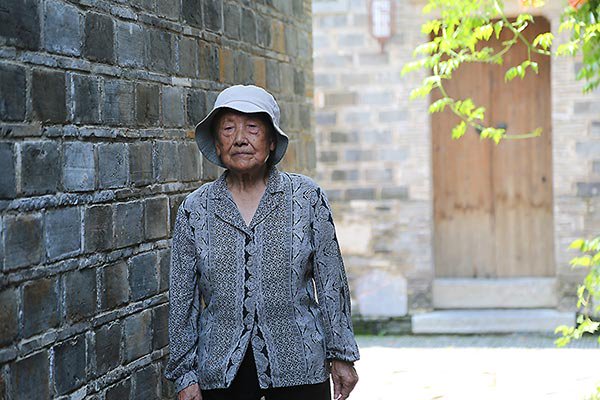Shoah Foundation film to be shown at film festival
Days after losing her parents, Xia Shuqin and her sister were found standing in the rubble of their house by an American missionary, who was taking a picture of the scene. In the present, the Nanjing Massacre survivor is sharing her experiences with her grandchildren to carry on her family’s history.

While creating the documentary, the film team spent several days walking through China with Xia Shuqin and her grandchildren as Shuqin remembered various places from her childhood. Photo from Tribeca Film.
The Girl and the Picture follows the life of Xia after the events of the Nanjing Massacre. The documentary, produced by the USC Shoah Foundation, will be shown at Tribeca Film Festival on April 27.
“Sometimes it’s hard to understand history without identifying information about people and actual lives,” said Vanessa Roth, the film’s director. “One really powerful way to understand history is to understand [that it] is family history.”
The USC Shoah Foundation has maintained an ongoing partnership with the Memorial Hall of the Victims in Nanjing Massacre by Japanese Invaders with the intention of collecting the survivors’ testimonies, making them interactive and bringing them to a larger audience.
One of the foundation’s interviewees was Xia, whose own experiences utilizing activism to raise awareness about the massacre appealed to the foundation. Foundation members conducted a closer examination into Xia’s story.
“When we brought her to Los Angeles to interview her as part of our interactive testimony, we became more in touch with her story and her experience and this part of that became also her interest in telling the story to her own family,” said Karen Jungblut, director of research and documentation at the Shoah Foundation.
According to Jungblut, this initial interest quickly formed an idea for a full-length documentary. Throughout the documentary’s developmental stages, staff members interested in the project focused on the familial bonds and legacy Xia’s wanted to create by sharing her story.
“[Nanjing survivor] Madame Xia has been interviewed about the massacre for many years now by many journalists around the world,” Roth said, “We wanted to make a film that was a personal story.”
The film team spent days filming Xia and her grandchildren walking through the places in China she knew as a child and looking through photographs from her past, before and after the massacre.
“Family members get answers that are personal,” Roth said. “A young child would ask questions about childhood and bring her back to her own childhood.”
Now, with the chance for added exposure through the Tribeca Film Festival, Roth said The Girl and the Picture can spread its lessons to a wider audience.
“Tribeca is one of the most important film festivals globally,” said Andi Gitow, the film’s executive producer, who is also the director of strategy, partnerships and media production at the Foundation. “It’s not even just about the screening itself that takes place, but the discussions around the screening, the press coverage, the fact that [it] allows Madame Xia’s message and USC Shoah’s message to get out even more.”
The film has been submitted to a number of other festivals, including the Newport Beach Film Festival. There are plans to screen the film in China and distribute it through a theatrical release to spread its message worldwide.
“It’s this idea of the legacy across generations,” Gitow said. “It’s a legacy of loss, a legacy of resilience, it’s a legacy of family and it’s a legacy of forgiveness. I think the notion is that everyone has stories to tell and it’s important that people share their stories with their own families.”
Meanwhile, the foundation has continued to collect 100 other testimonies to be subtitled in English and integrated into the archive by the end of the year. Jungblut said that by bringing in these interviews, more light will be shed on a fragment of history that has not previously received as much attention.
“To really understand the global impact of a World War and a war that really happened on different continents and the impact that this history has … from that perspective, I think it’s important to us to bring these stories into the archive with the Holocaust survivor testimonies and other testimonies from other genocides,” Jungblut said.
